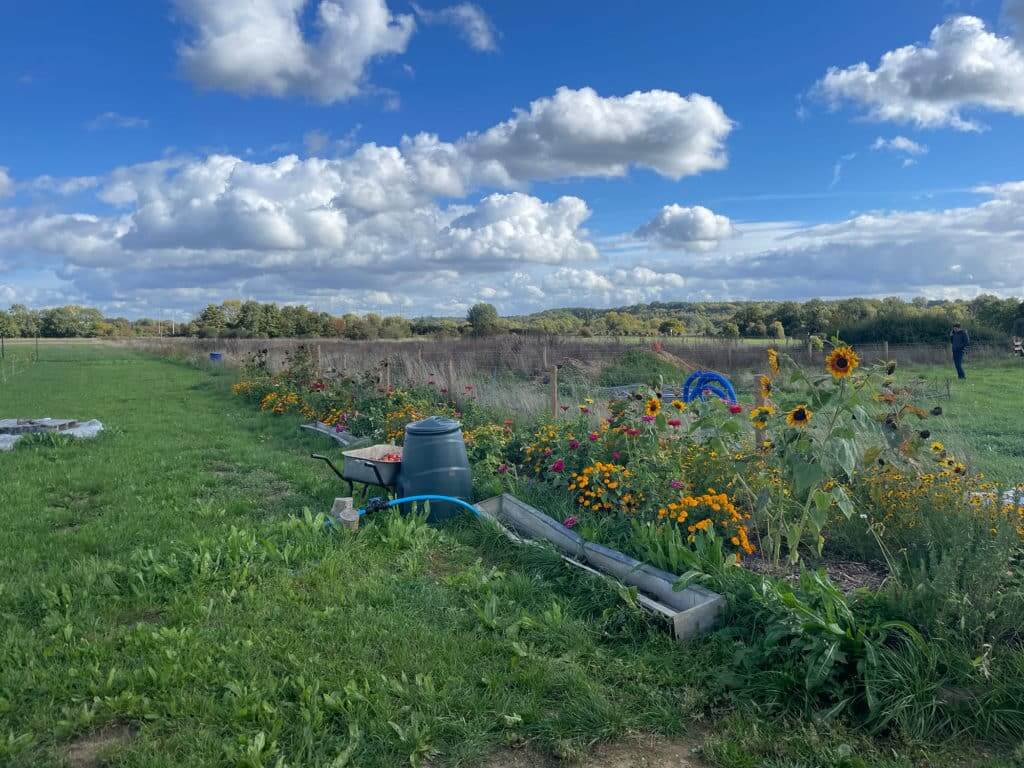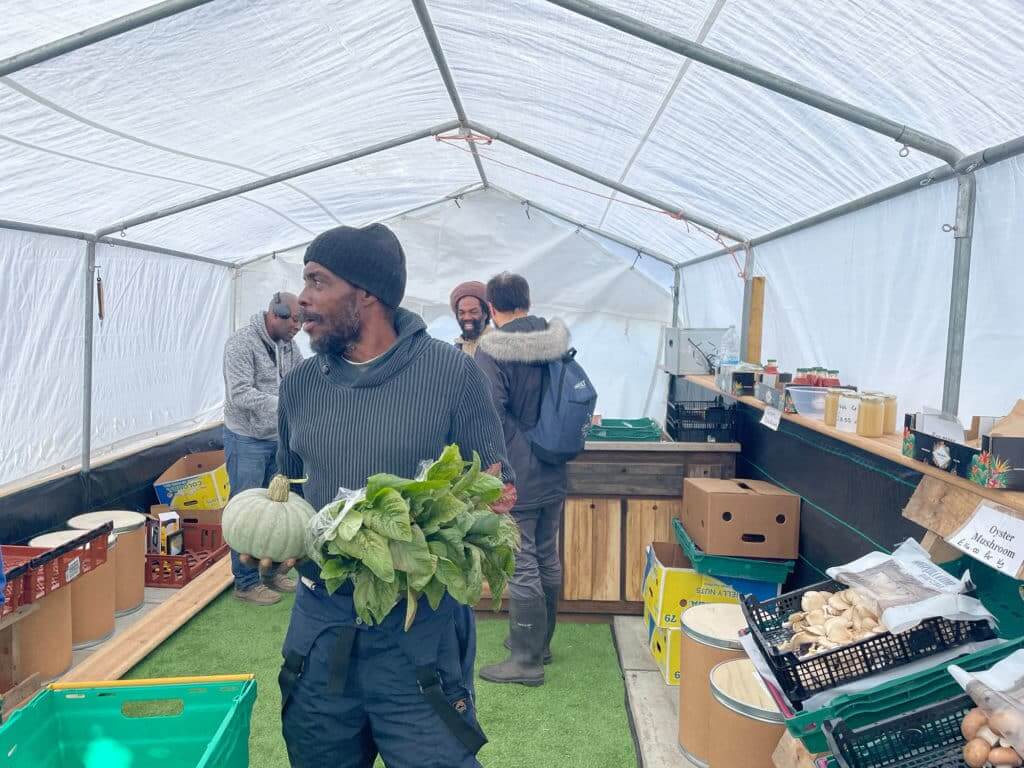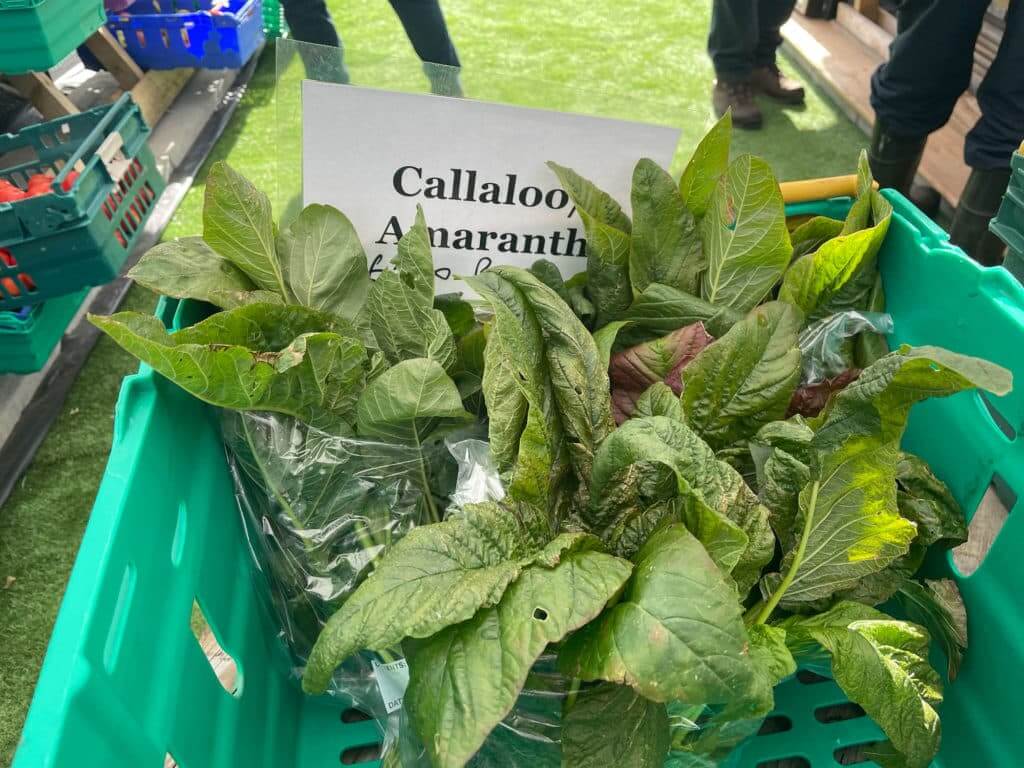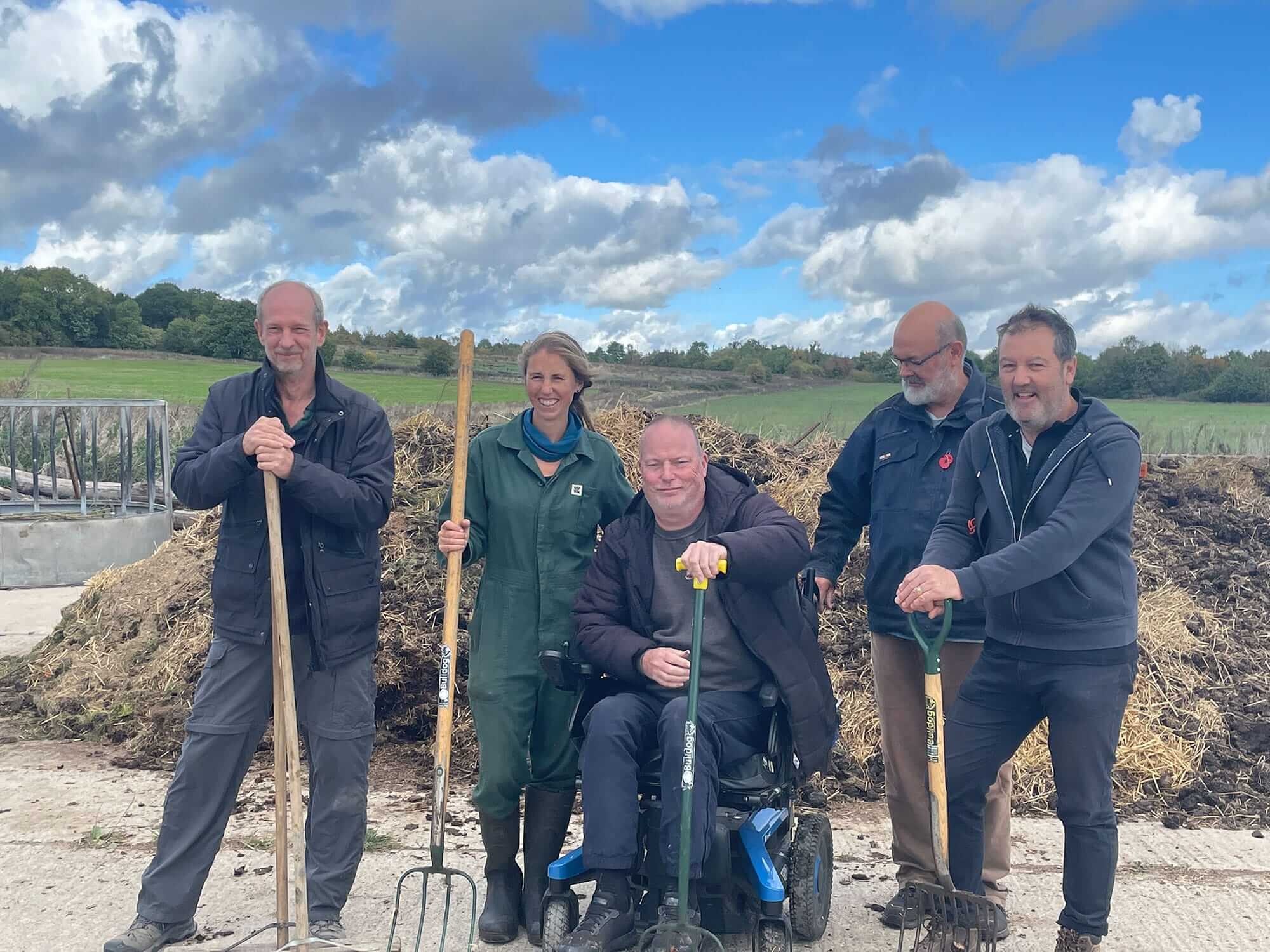When pulling up at Woodoaks in Hertfordshire, it’s immediately clear that this is not a typical farm.
Extras in period drama costumes strut around the barns with a film crew in tow, friends cluster around a wooden shack with coffees, volunteers tend to a mountain of steaming compost and people flow in and out of a polytunnel with bags of fresh produce.
When many farmers are isolated and lonely, this farm is bursting with life. And where the trajectory of modern farming has led to bigger machinery, more intensive practices and fewer people on the land, Woodoaks is bucking the trend.
This is a model of farming that is starting to emerge called enterprise stacking, where farm businesses are ‘layered’ on top of each other, all connecting and benefiting each other.
Here, a market garden, a café, a film set rental, a brewery, a compost club and a livestock and crop farmer can provide common benefits to each other, such as building soil fertility of the market garden through livestock grazing or bringing more people to the farm through film set rentals to buy lunch from the café or the veg from the market garden stall.
Could this be the answer to a farming mental health crisis, reducing barriers to accessing land and help encourage a shift back to nature-friendly mixed farming?

A farming couple disillusioned with modern agriculture has set this mission before the UK’s leading organic certifier, the Soil Association, bequeathing 300-acre Woodoaks Farm to the organisation in 2020.
Rose Lewis is at the helm of the project and as a co-founder of a start-up in a former life, she brings a fresh approach to farming.
“We want to bring diversity back onto the farm, not just in crops, but in humans, too,” says Lewis.
“We’re inviting different entrepreneurs onto the farm and our first was a market garden,” says Lewis. “In eight months, we’ve gone from three crops to 30.”
“My dream is a butchery and baker,” says Lewis, whose vision is inspired by Wakelyn’s farm in Suffolk, which hosts fruit-producing agroforestry, sustainable wheat and an on-site bakery.
“The key thing is about providing an opportunity to buy food from their local farm and get more people back onto the land,” adds Lewis.
Step in Rickey Bryan and his so-called ‘alkaline market garden and fruit forest’, where what was a drab monoculture field with pesticide residues less than a year ago is now a thriving market garden using sustainable principles of growing. This is also what’s happening on a landscape-scale on the wider farm, which is under conversion to organic farming.

“We try to infuse different disciplines; we try to use a bit of old school with a bit of technology,” explains Bryan. “We use some permaculture, key line farming, Japanese natural farming, no dig and we infuse it all together.”
“You can regenerate the soil very fast,” he says, standing over a colourful array of diverse plants in curved beds, a method used in permaculture to distribute water more efficiently.
The market gardener recounts how he learnt these principles first in Jamaica while planting fruit forests with his grandfather. Since moving to the UK, he has expanded his knowledge from other cultures but struggled to find a permanent site to flourish, until now.
He has certainly captured the enthusiasm of the local community, as people stream in and out of his polytunnel-farm shop to buy callaloo, a popular Caribbean green that resembles a fibrous spinach. According to Lewis, the local volunteering group message has been kicking off, exchanging recipes on how to cook it.
For Lewis, getting local people onto the farm is vital, and from planting hedges to composting, volunteers are eagerly welcomed.
Williams Stephens, a recent retiree, volunteers every week at the compost club that collects food waste from local cafes, transforming it into fertile compost to be used in Bryan’s market garden.
“It’s about bringing this farm back to life and being part of that,” says Stephens.
And it’s also why Woodoaks isn’t just about growing food, but also about enjoying and learning about it, according to Lewis: “Having a café and workshops on food closes the loop. Having a compost club goes even further because the food waste goes back into the soil.”
From a financial point of view, closing the loop can be more profitable, too. “I can rent arable land for £100 an acre, £500 an acre for a market garden. Put a café on there and suddenly it’s ten times the revenue,” she explains.
This kind of model is perhaps also gaining traction as farmers become disenfranchised by modern intensive farming and exploitative supermarket supply chains. Last month, 50 farmers met at the progressive farming education centre, FarmED, to explore the potential of enterprise stacking, while Hampshire farmer Tim May has publicly invited pitches from sustainable food and farming start-ups on his estate.

Head of sustainable farming at FarmED, Jonty Brunyee told the group that this model goes beyond diversification, where farmers simply add non-agricultural businesses to their farm, but are not necessarily linked.
“It all comes back to agroecology,” says Brunyee, who explains it as a holistic approach to farming that links up the whole food system, from soil health to workers’ rights. “Everything is interrelated.
“We want resilient businesses with social and environmental value at the heart of them,” he adds.
Back at Woodoaks, Lewis explains: “Diversification is having some retail units on the farm and renting them out to a graphic designer. But they’re not necessarily linked back to the land. You lose the ability to bring the community around a common cause.”
Witnessing the energy of Woodoaks Farm, even in its early days, it is a powerful vision indeed and one that could surely be replicated elsewhere. As Lewis puts it: “Just think how rural Britain could change if every farm added a market garden, a café and a bakery.”









I would love to know the address of Woodoaks Farm.
I’m going to turn up here when climate change has made London uninhabitable. Hope you’ll have room 😂